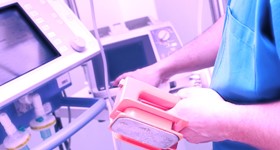How will global trends shake up South Korea’s medical scene?

Amidst the volatile and unpredictable emerging medical markets throughout Asia, South Korea remains fierce in its ambitions to be a world-leading medical hub. Already three months into 2019, we have seen a global push for innovation, higher demand for better services and greater integration of technology within the medical scene.
With ample support from the federal government by way of investments and approved funding in support of research and development initiatives, there is definitely positivity in Korea’s ability to keep up with the top innovation trends of 2019.
We further set out below how Korea could likely respond to current global trends impacting businesses around the world:
1. Artificial Intelligence (AI) for healthcare application
In our previous article, we briefly covered the impact that AI could have on the healthcare sector. Relevantly, the emergence of AI-powered biotech start-ups have dominated the growth of healthcare on a global scale. This has led traditional pharma companies to tap into the AI biotech market, especially in the area of AI ‘Software-as-a-Service’ (SaaS) start-ups for innovative solutions.
To further encourage this trend, the South Korean government is actively making investments in the pharma sector to help introduce AI-driven drug development and innovation within the healthcare field. To leverage off the benefits of cultivating a collaborative environment between medical institutions and start-ups, healthcare groups and large pharmas are partnering with start-ups to take advantage of their tech expertise. For instance, CJ Healthcare partnered with Syntekabio to develop immuno-oncology drugs using AI – Syntekabio handling the early stages of drug development whist CJ Healthcare proceeding with clinical trials.
Historically, South Korea has been rather slow in adopting digital healthcare tools including AI-driven new drug development. However, the government along with the medical and pharma industry appear to have joined their efforts in a move to not fall behind emerging global trends. Still, smart healthcare industry is still mired in excessive regulations. Moving forward, the global push for AI technologies in the medical sector will urge Korean regulators to ease processes in terms of regulations. This will ultimately tackle new diseases, create personalised drugs, and improve the lives of patients in future.
In times to come, the South Korean market for AI-driven new drug development is expected to grow by an average of 40% annually to reach ₩4 billion by 2024 in Korea.
2. Concerns of big data as digital health tech becomes more mainstream
Globally, the use of big data and big data analytics have been crucial in identifying strategies to cater to the growing demand for medical services. This collated medical data goes beyond the conventional patient electronic medical records, and comes from various smart medical devices and even through our mobile phone applications on-the-go.
With the benefits of big data coming to light, South Korea is consolidating hospital medical data into a single 10 million-patient repository to cater for tailored services to patients. The goal is to use Korea’s established medical IT system to build a resource that supports digital health initiatives and the development of new drugs and devices.
South Korea currently retains a “world-top level bio database, thanks to the vast digital medical system,” according to Korean trade minister Paik Un-gyu. He further stated that “through further deregulations and a phased public fund program, we will help local pharmaceutical and medical device companies expand into the global market.” The nation is currently gathering the medical records of about 50 million people from 39 hospitals nationwide by 2020 to establish big data in the medical field.
However, the government has ensured that this is being actioned whilst being compliant to patients’ privacy. The aim of this exercise is to adopt big data analytics and bring forth a new era of personalised drugs and advancements as part of tailored medical services provided to patients.
3. Healthcare will be a dominant vertical in voice applications
Voice-driven applications (apps) were introduced on the market to largely improve the efficiency of healthcare services. This is specifically relevant to patients as interactive voice apps have educational benefits that are more informative than current system of handouts, pamphlets and self-driven research online.
Voice apps can also assist doctors and medical practitioners in a number of ways such as improving on old dictation systems, taking direction to complete tasks like recording notes, and facilitating the complex process of billing. New technology in healthcare has also made it easier for patients to only remember crucial information and leave the rest to their voice assistants such as the Alexa healthcare app. Developers are currently working on the Alexa app to help guide patients on how to use their medications.
Voice apps are still in the early stages of proving their superior usability in comparison to text or face-to-face interactions with providers in South Korea.
4. Blockchain integration with health and medical industry
The hype surrounding blockchain has integrated itself into the medical industry and this has lured early adopters all around the world to jump on-board. With the help of blockchain technology, the healthcare industry hopes to increase its data accuracy and minimise the processing of interval of services medical facilities. For example, the medical centre hopes to provide electronic prescription delivery, automated certificate issuance and insurance claims through the blockchain-based system.
However, it is still debatable on how and where blockchain technology can be used in the healthcare space. South Korea is leading by example and has announced its plans to launch a blockchain-based platform aimed at improving its medical services at Seoul Medical Centre, a major hospital in South Korea’s capital city. Slated for launch in April, this plan hopes to promote the “Seoul Innovation Growth Fund” which aims to raise funds of more than ₩1 billion for blockchain and fintech start-ups by 2022.
Stay tuned for further information
Our recruitment specialists at Real Staffing will keep a close eye on how the above trends will affect the job market within the medical and healthcare sectors in South Korea. In the interim, we expect that the above trends will have a positive impact on the South Korean economy, the medical and pharmaceutical market.
If you are a pharmaceutical or medical professional in Korea and would like to find out more about these trends and how it can impact your organisation, drop Insung Cho, Senior Consultant of Real Life Sciences an email at c.insung@realstaffing.com. You can also follow us on our LinkedIn page for other industry related insights within the market.




